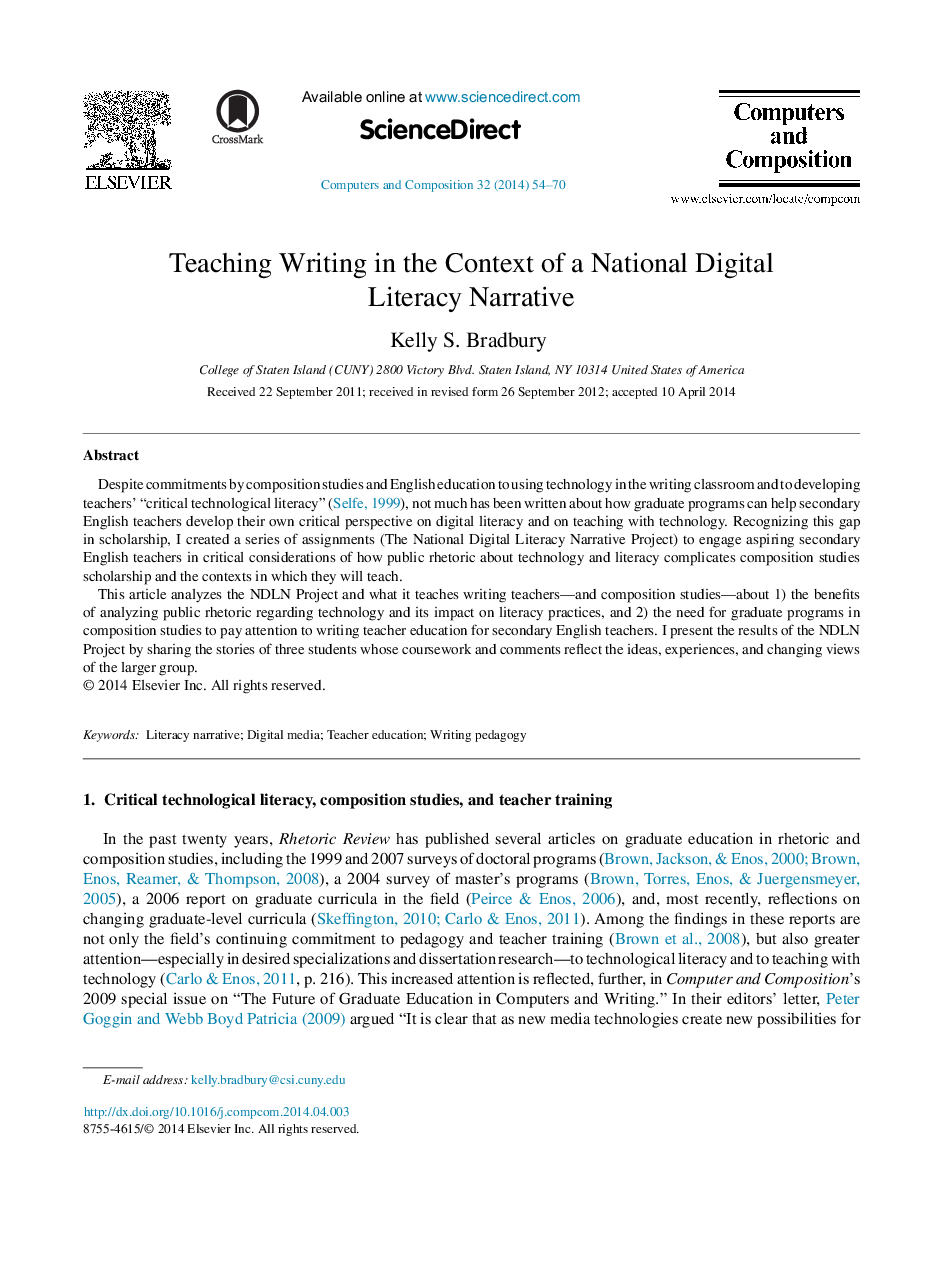| Article ID | Journal | Published Year | Pages | File Type |
|---|---|---|---|---|
| 347856 | Computers and Composition | 2014 | 17 Pages |
•We must consider how public rhetoric about technology affects writing pedagogy.•Composition scholars should include secondary teacher training in their research.•The NDLN Project helps teachers develop “critical technological literacy.”•Three students’ stories highlight the work and benefits of the NDLN Project.
Despite commitments by composition studies and English education to using technology in the writing classroom and to developing teachers’ “critical technological literacy” (Selfe, 1999), not much has been written about how graduate programs can help secondary English teachers develop their own critical perspective on digital literacy and on teaching with technology. Recognizing this gap in scholarship, I created a series of assignments (The National Digital Literacy Narrative Project) to engage aspiring secondary English teachers in critical considerations of how public rhetoric about technology and literacy complicates composition studies scholarship and the contexts in which they will teach.This article analyzes the NDLN Project and what it teaches writing teachers—and composition studies—about 1) the benefits of analyzing public rhetoric regarding technology and its impact on literacy practices, and 2) the need for graduate programs in composition studies to pay attention to writing teacher education for secondary English teachers. I present the results of the NDLN Project by sharing the stories of three students whose coursework and comments reflect the ideas, experiences, and changing views of the larger group.
